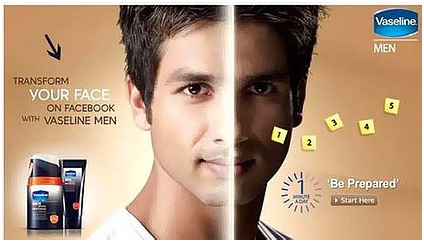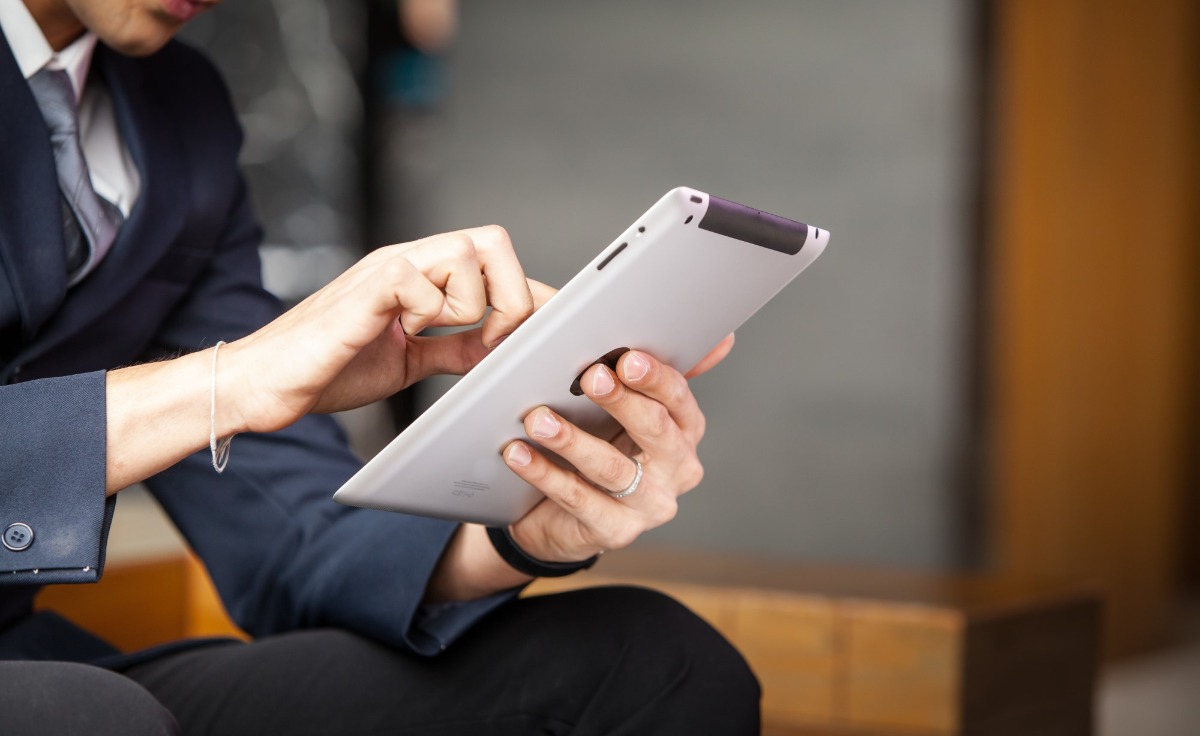
02
Aug
2010
A new Facebook app by Anglo-Dutch skincare company Vaseline has created a lot of recent global controversy as the widget may be closely intertwined with detrimental effects on health, identity, self-image, racial supremacy and even colonial mentality.
created a lot of recent global controversy as the widget may be closely intertwined with detrimental effects on health, identity, self-image, racial supremacy and even colonial mentality.
The Vaseline widget promises to "Transform Your Face on Facebook with Vaseline Men" in a campaign fronted by Bollywood actor Shahid Kapur, who is depicted with his face divided into dark and fair halves.
After agreeing to load the application the site invites you to upload your pictures and prepares your avatar by ‘digitally’ lightening your skin. The Vaseline app, which was created to promote its new skin-lightening cream joins half a dozen other foreign brands including Garnier, L'Oreal and Nivea, which promote the seemingly magical lightening qualities of their products in ubiquitous advertising.
The skin-lightening industry is booming in Kenya, Nigeria, the Caribbean, and particularly in India where the market expands at nearly 20% per year. Bihaku is a Japanese fashion style where one aims to have white skin, or a general lack of pigment to achieve the ideal irojiro or fair skin. The ‘fairness’ market in India alone has been estimated by market research group Nielson to be around worth $500 million a year, with sales of products for men up by 25 per cent since last year. The politics of skin colour are especially troubling as many human rights campaigners argue that advertisements for such products reinforce age-old prejudices that skin colour determines future success.
In India, there are many preconceptions largely related to its history. The Times of India Social Media recently stated “many Indians believe that if you have fair skin you belong to the higher caste, the Brahmins. The matrimonial adverts that appear in Indian newspapers are also a vivid illustration of the cultural preference for paleness. A widely-understood lexicon has been developed to talk about skin tone. In shops for passport photos, the camera operator will frequently offer a "free lightening service" when the pictures are processed and printed”. AFP in the same magazine is quoted as saying “somebody described as having a "wheaten" complexion is lighter in skin tone than somebody who is "dusky". It is commonplace to comment on someone who is beautiful and "very fair" in the same breath”.
There is little doubt that a succession of light-skinned colonisers in India reinforced the association of fairness with power and probably contributed to this negative perception of dark-skin. These included the Aryans, from central Asia, in addition to the Portuguese, the French and the British colonisers. In 2009, a poll of nearly 12,000 people by online dating site Shaadi.com revealed that skin tone was considered one of the most important criteria when choosing a partner in three northern Indian states. Indian cosmetics giant Emami launched the first skin-whitening cream for men in 2005, called "Fair and Handsome" and advertised by Bollywood superstar Shahrukh Khan. The reporter continues “the Emami product came 27 years after the first cream for women. However the advertisement caused a stir among campaigners, with London-based Sikh human rights activist, Kiran Kaur telling the BBC that its association with a Bollywood name was ‘‘a step back in time’’.
Most skin-lightening treatments, which can reduce or block some amount of melanin production, are aimed at inhibiting tyrosinase. Many treatments use a combination of topical lotions or gels containing melanin-inhibiting ingredients along with a sunscreen, and a prescription retinoid. Depending on how the skin responds to these treatments, exfoliants — either in the form of topical cosmetic or chemical peels and lasers may be used. Topical hydroquinone is considered by many dermatologists to be a safer, similarly effective (if not more so), and less expensive option than lasers or deep peel treatments. Topical hydroquinone comes in 2% (available in cosmetics) to 4% (or more) concentrations (available from a physician or by prescription), alone or in combination with tretinoin 0.05% to 0.1%. Research has shown hydroquinone and tretinoin to be powerful tools against sun- or hormone-induced melasma. Some concerns about hydroquinone's safety on skin have been expressed, but the research when it comes to topical application indicates negative reactions are minor or a result of using extremely high concentrations or from other skin-lightening agents such as glucocorticoids or mercury iodide is particularly true in Africa where adulterated skin lightening products are commonplace.
Health concerns have also been flagged over the misuse of some products. Hydroquinone has been shown to cause leukaemia in mice and other animals. The European Union banned it from cosmetics in 2001, but it shows up in bootleg creams in the developing world. It is sold in the United States as an over-the-counter drug, but with a concentration of hydroquinone not exceeding 2 percent.

In January the New York Times reported on severe side effects being reported in the US with many skin lightening products - or counterfeit versions of them - containing prescription-strength ingredients. Some concerns about hydroquinone's safety on skin have been expressed, but the research when it comes to topical application indicates negative reactions are minor or a result of using extremely high concentrations or from other skin-lightening agents such as glucocorticoids or mercury iodine. This is particularly true in Africa where adulterated skin lightening products are commonplace. In Japan, the cosmetic lightening industry favours arbutin and kojic acid. Arbutin is derived from the leaves of bearberry, cranberry, mulberry or blueberry shrubs, and also is present in most types of pears. Other ingredients include Vitamin C derivatives, tranexamic acid and an important enzyme called cathecol oxidase, which works either directly or indirectly to stop the creation of melanin.
Pankaj Parihar from global advertising firm Omnicom, which designed the Indian Vaseline widget, told AFP "We started campaign advertising (for the application) from the second week of June and the response has been pretty phenomenal".
Worldwide Criticism
However, the Hindustani Times stated the app has ignited worldwide criticism and states “the application, however, has no takers — virtual or real. Its online rating is ‘Poor’, with close to 700 Facebook users rating it one on a scale of five”. Of our 100 respondents, 70 per cent said they would “never” use the application, 25 per cent said they would “try it out for fun” and 5 per cent said they “weren’t sure.”
The Guardian, UK points out, that the parent company of this brand also has other brands, which promote self-esteem. Calling this a hypocritical divide, the paper calls on people to “Vote with your tweets, start blogging, start boycotting and start asking them to stop this campaign for whiter beauty. Only then might marketing people start listening.”
The Wall Street Journal points out, “The application is sure to reignite the debate even if it purports only to lighten your skin in photographs.”
Hey, wait!
Before you go.....
Let's stay in touch, pop your details here and we'll send our editor's hand-picked updates on your fave subjects.